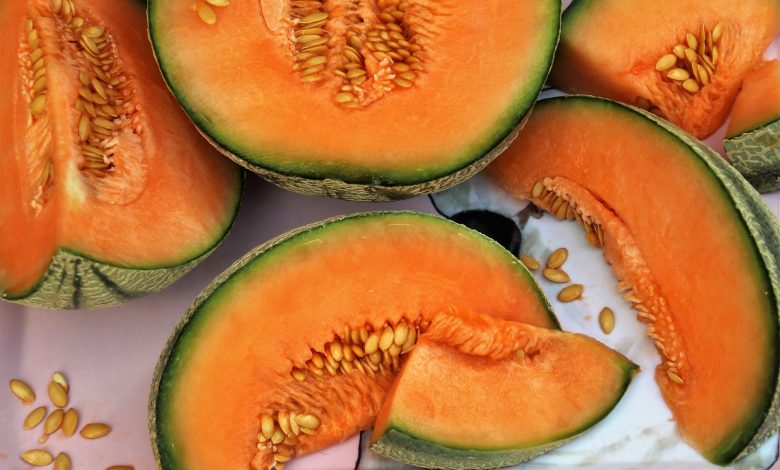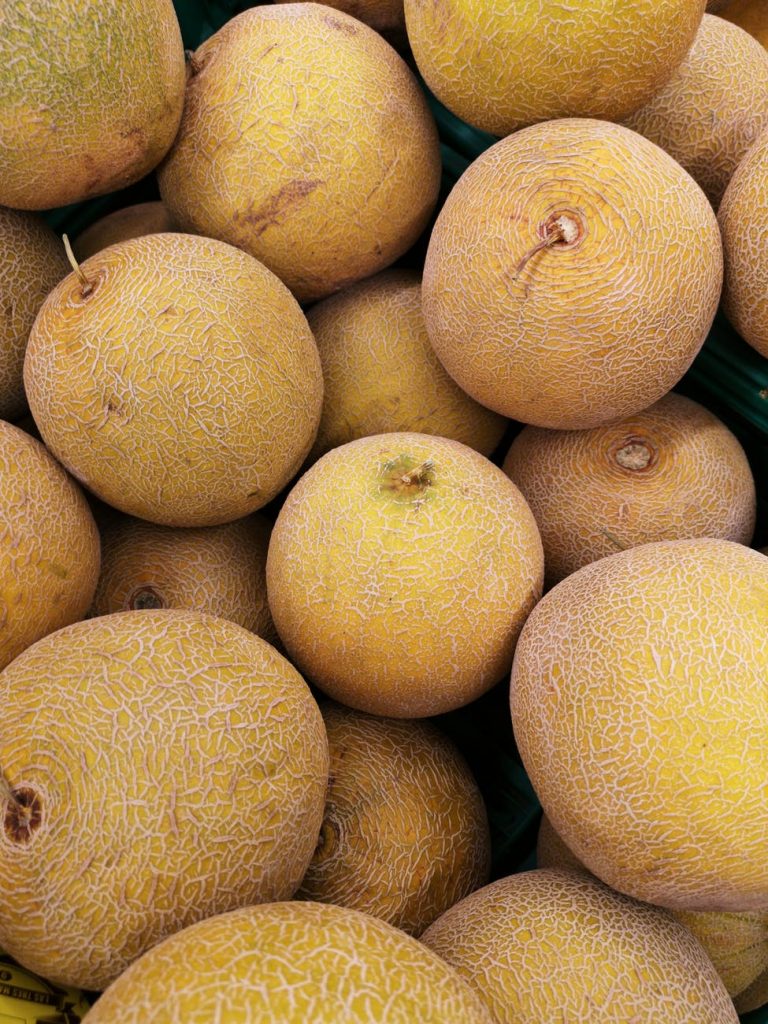
How Melons Can Help You Achieve Your Ideal Weight
One of the best readymade snacks of nature is undoubtedly fruit. Packed with fiber vitamins and several other nutrients, fruits are a great addition to a wholesome, healthy diet.
For those of you less aware of the characteristics and advantages of fruit, here’s an interesting fact – a piece of fruit might be much lower in calories as compared to any other food like a bag of chips or a bagel. This is the reason why most nutritionists and diet experts recommend it as a snack/dessert when helping their clients lose weight. In addition to supporting weight loss, fruits can lower blood pressure and reduce the risk of heart disease and diabetes too.
The Science Behind Weight Loss
When your goal is to drop pounds, i.e. lose weight, you have to ensure that your daily calorie intake is less than the amount of calories burnt. When this is sustained for an extended time period, the body starts burning fat to use as fuel, which eventually leads to reduction of fat stores in cells. This is a slightly simple explanation of the entire process, but more or less on point.
Another vital thing to consider when making a dietary change in your lifestyle is to try and meet all your nutritional requirements, despite the reduced calorie intake. This would require you to pick foods that are high in nutrition and low in calories, e.g. fresh vegetable and fruits, lean meats and whole grains.

Melons For Weight Loss
With the above background in mind, we now come to the subject of melons, and how this delicious fruit is an excellent weight loss supplement. The first thing you need to know about melons is that they are made up mostly of water and hence contain very few calories. The different varieties of melons include honeydew melons, cantaloupes, and watermelons. The best thing about this fruit is that it is absolutely delicious! In fact, a ripe and juicy melon can easily become your new favorite dessert and replace those bags of candies or ice cream.
According to the USDA, a cup (approximately 150 grams) of honeydew melon contains only 64 calories, whereas a cup of cantaloupe clocks in around 54 calories. Watermelon, on the other hand, contains the least amount of calories, only 46 per cup.
For women, a diet of 1,200 – 1,500 calories per day is recommended for weight loss (as per the National Institutes of Health); a cup of melon would only make up for about four percent of the daily calorie intake. The same cannot be said for a piece of brownie or a stack of pancakes.
The interesting fact is that, despite being a low-calorie food, melons don’t compromise on nutrients and are a rich source of potassium, fibre, and antioxidants like beta-carotene, lycopene and vitamin C. They contain high amounts of carbohydrates too, but these carbs hardly interfere with weight loss. They are mostly natural sugars, and the idea is to consume them in moderation. The dietary fiber in the fruit actually aids weight loss.
Fiber and Its Role in Weight Loss
Since we’ve touched upon the subject of fiber, let’s get into a little more detail and explain its role in natural digestion. Fiber is basically the tough component of the walls of plant cells that cannot be digested by the body. Besides helping regulate bowel movement, it helps control the impact that natural fruit sugar has on your blood sugar levels. A cup of cantaloupe and honeydew melon offer up to 1.5 grams of fiber, which is a pretty good amount as compared to processed foods.
Another excellent characteristic of fiber is that it is keeps you full for a long period of time; in other words, it is a very satiating nutrient. As per the Journal of Nutrition and Metabolism, 2019, it also leads to stomach distension that postpones the rate at which ghrelin (hormone that stimulates appetite) is released. So this means that if you eat a cup of melons during the middle of the day, there is a chance that you might consume lesser calories during lunch.
Best Melons: Muskmelon vs Watermelon
When you look at a watermelon, the first thing that strikes you is the color of the fruit – bright red! This color can be attributed to the presence of lycopene, a specific type of antioxidant in this melon. The same is not present in muskmelon. Also, watermelon contains small amounts of sodium, making it a rather a suitable fruit for those suffering from hypertension. Muskmelon, on the other hand, has plenty of vitamin C, sodium and fiber and is a great summer food for all. If you eat both fruits in a balanced amount, it could help you lose weight and experience other health benefits. However, if we talk specifically of weight, then watermelon aids the process a little better than muskmelon.
Watermelon is approximately 92 percent water, which makes it an excellent option for those trying to shed some pounds. Scientific research indicates that water stimulates weight loss, as it flushes out all toxins from the body and helps curb appetite (the effort to chew and swallow makes people feel like they’re eating more than they actually are).
Eating watermelon on a daily basis will help you stay hydrated at all times. And when your body gets enough water, it is able to function optimally. Hydration also ensures that you don’t mistake your thirst for actual hunger and hence overeat unhealthy foods. There is a good amount of natural sugar in this fruit, which helps curb cravings for high-calorie desserts too.

How To Pick Melons
In the U.S., the three types of melons most popularly consumed are honeydew, watermelon, and cantaloupes. Now if you’re new to the concept of purchasing fruits, then it might be slightly tricky for you to shop for melons for the first time. In general, try and look for more evenly shaped fruit that has no or minimal soft spots, cracks, or bruises. Also, hunt for melons which are slightly heavier, as they might be juicier.
When shopping for cantaloupes specifically, look for a brown netting; it will be clearly visible over the smooth skin of the fruit. You’d know that the melon got picked early if it has a stem attached to it. It’s easy to identify ripe melons because they have a nice, sweet fragrance. However, the smell should not be sickeningly sweet; then it is most likely rotten or overripe. The thing with cantaloupes is that they don’t stop ripening even when they’re plucked out. So when you buy a piece ripe, try and consume it quickly.
Ways To Incorporate Melons In Your Diet
Melons are an excellent fruit to eat during the summers, because they’re very refreshing due to their high water content and taste delicious! If you’re big on raw food, then one of the best ways you can eat melons is by making salads. For instance, a very popular combination is watermelon chunks combined with some feta cheese and basil with a balsamic vinegar dressing. You could also put together some spring greens, pumpkin seeds, chopped/sliced red onion, melon chunks, and chopped mint and dress the mixture with vinegar and a little olive oil. Of course, you can always enjoy a bowl of freshly cut melons or incorporate some chunks in your summer fruit salad. Kids also love melon-based smoothies and frozen melon popsicles; both are extremely refreshing snacks during summers.
While consuming watermelon, it is critical to remember that the fruit has a high glycemic index, hence it is necessary to pay attention to portion control.
Additional Health Benefits Of Melons
As mentioned earlier, besides being low in fat and calories, melons have high amounts of water content minerals and vitamins. A fresh honeydew, cantaloupe and watermelon, in fact, is made up of 90 percent water; hence, each of these varieties of melons is an extremely thirst-quenching snack. However, melons have multiple health benefits too, besides being refreshing.
You get natural sugars from honeydew that keep giving fuel to your cells all day long. The fruit has minimal fat content and several important minerals and vitamins like:
Potassium: This is a key mineral to help in the normal functioning of your heart; The lack of it could lead to an irregular heartbeat.
Vitamin C: This vital vitamin has immunity boosting advantages and also gives your skin a healthy glow, while promoting optimal brain function and strengthening tissues.
Vitamin B: It helps eliminate all the toxins in your body that could cause disease and illness.
Copper: This mineral helps in the regeneration of skin cells, which further helps ensure healthy skin.

The Role Of Melons In Belly Bloat
You can best keep a check on your overall health by consuming a nutrient-dense diet that comprises a variety of different foods and getting adequate exercise. While that’s the standard way to maintain a healthy weight and feel good from the inside, some people suffer from a case of the ‘bloated belly,’ regardless of how well they eat or how much they exercise.
The good news is that melons can play a role in minimizing/eliminating belly bloat. Did you know that just half of a melon has nearly two times more potassium than bananas? This makes it a brilliant high-antioxidant and low-calorie alternative, one that could support the elimination of extra fluids in your body. Also, the cantaloupe variety offers two times more than the daily vitamin C dose recommended by doctors and nutritionists. This helps in supporting the immune system, while also keeping your skin glowing and in excellent condition.
Storage of Melons
If you’ve never really bought melons, here’s some information that will help you store them well. In general, cantaloupes can be kept for a longer period of time as compared to honeydews. However, they still need to be refrigerated. Make sure you cut open the fruit within four or five days after purchase. Also, do not remove the seeds from the fruit until you eat it; this helps keep it moist and juicy.
Preparation and Serving Tips
You might like to consume melons when they are either at room temperature or slightly chilled (especially during summers). But the taste of watermelons is enjoyed best when you eat them icy cold. When the temperature is soaring outside, make yourself a refreshing multicolored melon salad that is topped with chopped, fresh mint. You could scoop out the melon in the shape of small balls, as it will make for a very pretty dessert!
Another great dish to try during the summer season is cold melon soup. You could easily make it at home and serve it as a first course or appetizer to your guests. When you remove the seeds from a cantaloupe, you’ll find that its natural cavity serves as the ideal place to fill in some fruit salad or nonfat yogurt – an excellent replacement for a dessert. Try squeezing a little lime or lemon juice on your fresh melon for that little extra flavor!

The juicy and sweet taste of melons can easily offer the same satisfaction as a high-calorie dessert without affecting your waistline. Once you start eating the fruit, you might soon turn away from unhealthy ingredients, like white sugar and corn syrup, that offer very little nutrition but lots of calories. If you’re on a mission to lose weight, make melons a part of your daily diet, whether as a snack in the middle of the day or a naturally sweet dessert!



